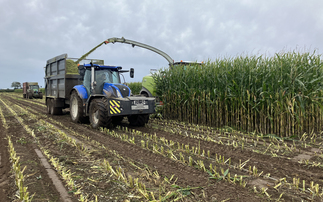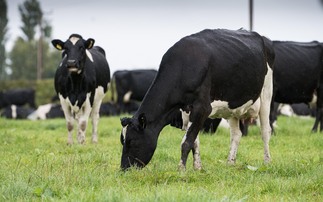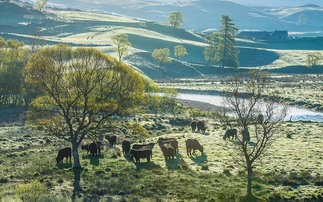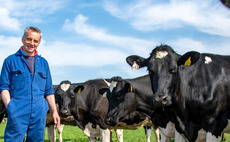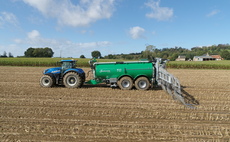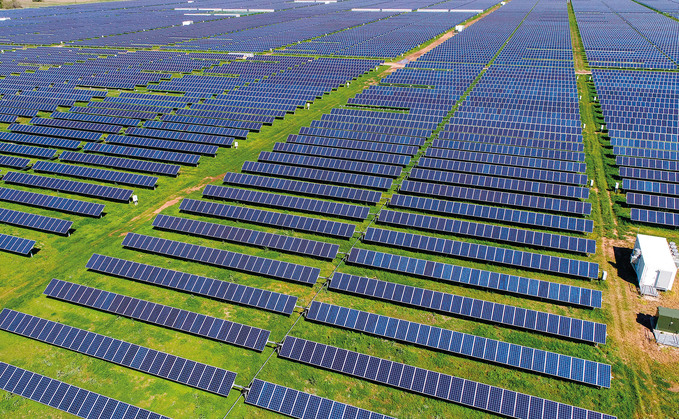
What happens when farmers, looking to expand their business, are declined by a traditional lender? Peter Taylor-Whiffen takes a look at the help and support available.
An innovative way to fund major projects is helping farmers expand their businesses and safeguard their futures.
Farmers who might previously have turned to banks to finance a machine, diversification or commercial property purchase have discovered practical alternative ways to borrow.
Non-bank finance does not just look at a business historic performance to determine whether to lend but the entire business, existing and new, and how the different parts complement each other.
And while bank loan repayments increase when interest rates rise, alternative funding offers fixed-term, fixed-rate loans, structured to farms annual seasonality, meaning whatever the Bank of England does, farmers repayments will not change.
TJ Hagan grew up watching his father run a cattle business but when his father gave him 24 hectares (60 acres) for his own poultry farm, the banks displayed no interest.
He says: I had farming knowledge but no poultry experience so they would not lend me the money.
But then TJ contacted Rural Asset Finance, which secures loans against existing buildings and land.
Its founder, Matthew Smart, then funded TJ based on his business proposition rather than refusing him because he could not provide three years of accounts.
To banks, I was a fella with some land and they could not understand how I would run it, says TJ.
Matthew considered my background, the family structure, my dad and brother helping, my farming knowledge and the supply contract I had been offered. He instantly grasped how it would work in practice.
Innovative financing could secure the future of thousands of farmers, who face tough choices about continuing traditional food production or finding new revenue in diversification, green energy and countryside sustainability.
Interest
A farmers son himself, Matthew believes it is vital lenders take a genuine interest in the people behind agribusinesses.
He says: Farmers must start safeguarding their business and their familys future.
Farmers must maximise their assets to ensure future revenues but traditional lending methods mean they struggle.
We fund equipment, land and buildings with fixed-rate, fixed-term agreements.
We are a rare UK lender who offers the complete package of loans secured on land and buildings and funds for equipment on hire purchase or lease. It is alternative finance combined with good old-fashioned customer service.
Diversification
MANY farmers are guaranteeing their businesses future by adding to or even replacing their traditional food production. Alternative funding can help here too.
Many agri-businesses have discovered a diversification can often become a farms main income. Hundreds have realised the potential of agri-tourism, such as glamping or camping facilities, fishing lakes, shops and holiday lets.
Many farmers have created specialist wedding venues and more still are exploring the potential of on-farm
green energy, installing solar arrays, wind turbines or biogas plants.
Others are maximising innovation grants to help purchase equipment alongside finance.
In all cases, asset finance can make those dreams a reality - it just needs an idea, of which farmers have plenty, says Matthew.
Opportunities
We are always amazed at farmers ideas, developing business opportunities with thought and sensitivity to their individual location. It is what makes our job so interesting, he says.
Many revenue streams incur major start-up costs but where banks might balk at loaning money for an untried venture, Rural Asset Finance sees future possibilities as much as past performance and invests in the borrowers skills and foresight.
We use land, buildings or equipment already owned as security, which opens huge possibilities for farmers to invest and create the business they want.
We see every day how inventive farmers are, yet so many ideas do not take off because they think they will not get finance.
We are responsible lenders and undertake due diligence and business analysis with in-house expertise, but above all we understand how farms work.
Farmers have brilliant ideas they just need someone to believe in them and support them with finance that is right for them.
From the sponsor
" RURAL Asset Farming champions UK farmers. That is why we are sponsoring #FarmingCAN, which showcases the fantastic work British agriculture does to feed the nation while building and safeguarding our economy, communities and landscapes.
We understand farmers challenges and are committed to helping them fund the future they want, whether that is traditional farming, green energy, innovative food production or environmental protection and sustainability.
Our lending approach is deliberately different: tailored repayment schemes on fixedterm, fixed rate loans secured on land and buildings, often in combination with equipment finance, also on fixed-term, fixed-rate hire purchase or lease agreements.
We are uniquely placed to help Britains farmers sustain the nation for generations to come. "












